Should you get a red dot pistol sight?
A slowly increasing number of shooters are installing red dot, also called reflex, sights on their pistols. Some optic companies are newly jumping into the reflex sight game, while a couple of the early producers are now offering second-generation red dots that have improvements over the first run of these sights on the market. If you’re thinking about making the leap and installing one of these high-tech optics on your handgun, here are some things to consider.

Pros
- Long-distance accuracy. There’s no denying that a shooter whose technique is solid will find that accurate hits come easier with a red dot at distances of 25 yards and more. Not having to deal with rear-front sight alignment is a real asset.
- Speed of target acquisition. The red dot reigns supreme, especially at longer distances, in confirming sight picture. There’s also no need to override the natural urge to focus on the target rather than the front sight—a red dot removes the three-planes-of-focus dilemma.
- Great for imperfect eyes. Using a red dot is intuitive. As eyes age or prescription glasses are lacking in some way, a red dot eases the challenges normally associated with sight alignment combined with imperfect vision.
Cons
- Batteries die. Unlike rifle optics, most pistol red dots are motion-activated, which conserves battery life. Even when used for daily carry, a battery should last a year. But when it’s dead, it’s dead. Some systems allow co-witnessing with the original sights, which I believe is the best option. Replacing the battery on certain optics entails the tedium of removing the sight from its mount. At least one company, Holosun, has a red dot with back-up solar power.
- Great gun holsters like those made by Bravo Concealment will accommodate a red dot, but not all will. And the sight does increase under-garment printing concerns when carrying concealed.
- Adding a reflex sight adds significant expense to the base price of any handgun that will accept it. Manufacturers are responding to demand to offer sights that fit in the existing rear sight indentation on the slide, saving the expense of sending the slide to a competent provider of milling services, but sacrificing the option of a rear back-up sight. Plan on spending several hundred dollars for the perfect slide/sight combination for your handgun.
Personal preference
- Dot or reticle size/style. With most models, the dot or reticle comes in one size and style. What’s large enough to be intuitive at five yards might obliterate the target from view at 25. Consider the type of shooting you do most, and anticipated distance of typical engagement—an armed robber at three yards is a different aiming concern than a feral hog at 40. At least one brand offers a choice of reticles on the same optic; several offer the same optic with your choices of one dot or delta point.
- Adjusting the racking procedure. If you habitually rack the slide by grabbing it behind the ejection port, you still can, but it’s going to take some adjusting. Some shooters I know use the meaty outside edge of the palm in contact with the reflex sight. Some use a pinch motion—a technique that requires good finger strength. Racking in front of the ejection port is an option, but only safe if your muzzle awareness is excellent.Adding a reflex sight to your handgun brings with it the need for concerted practice on a new racking method, and willingness to take some bruising on the way.
- Establish and maintain zero. A red dot is not unlike any riflescope in that you’ll need to choose a zero distance and make adjustments accordingly for closer or longer shots. It’s also, of course, wise to re-check zero after re-mounting for battery replacement. For some people, the testing and dial-adjusting required will be a satisfying experience. Others can’t be bothered. Know which camp you’re in and if it’s the latter, traditional sights are probably your best bet.
Reflex handgun sights offer great advantages for distance shooting and, with practice, speed of target acquisition. Like any accessory, they also come with some drawbacks, especially for concealment. Where do you stand on the traditional-versus-reflex sight dilemma?




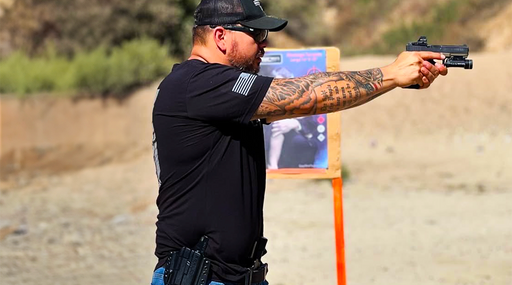
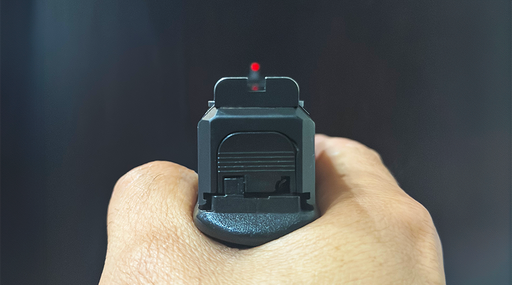
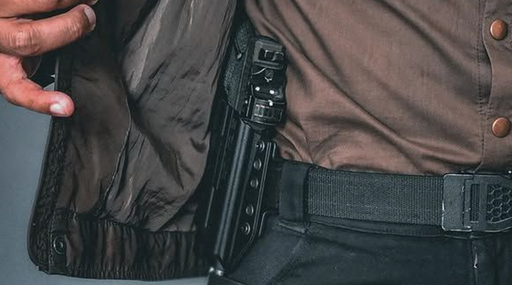
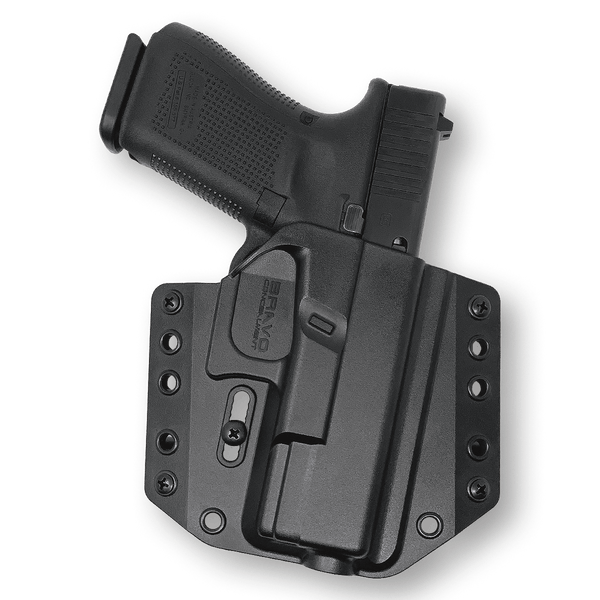
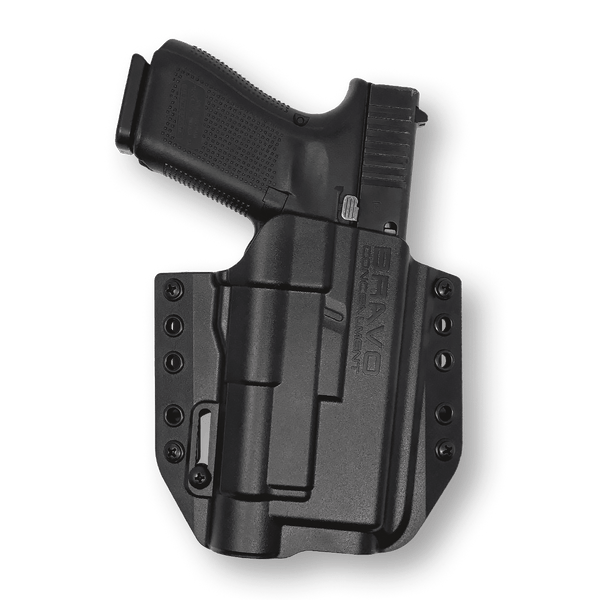
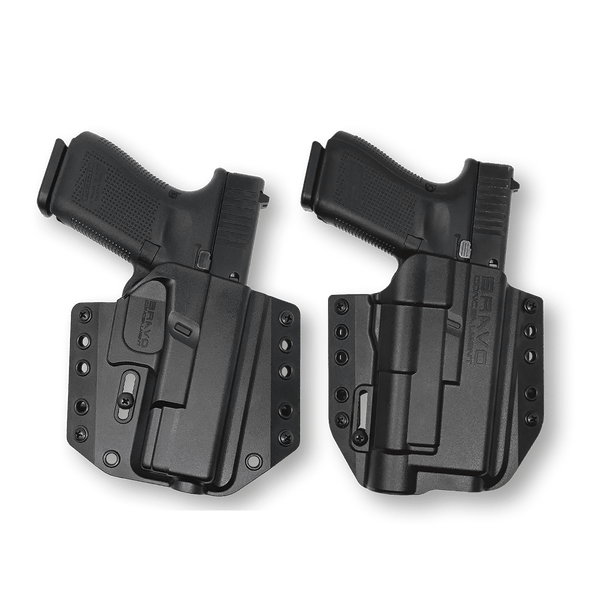
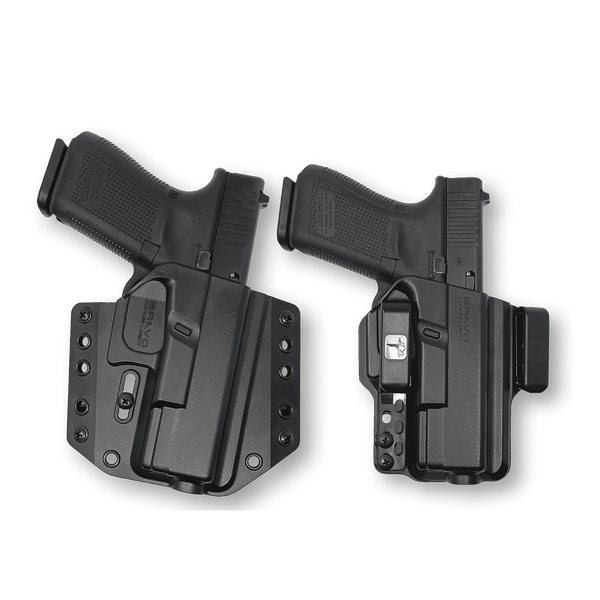
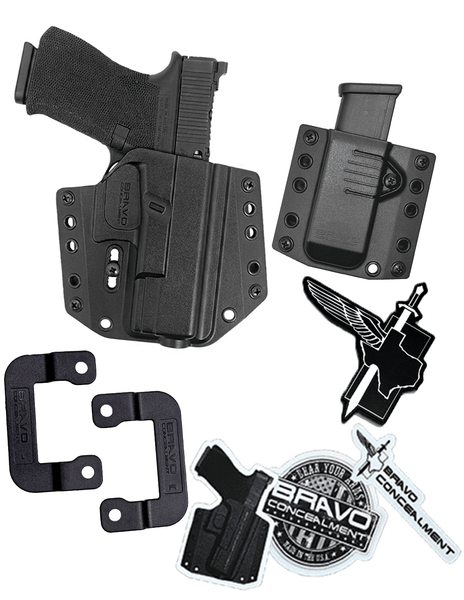
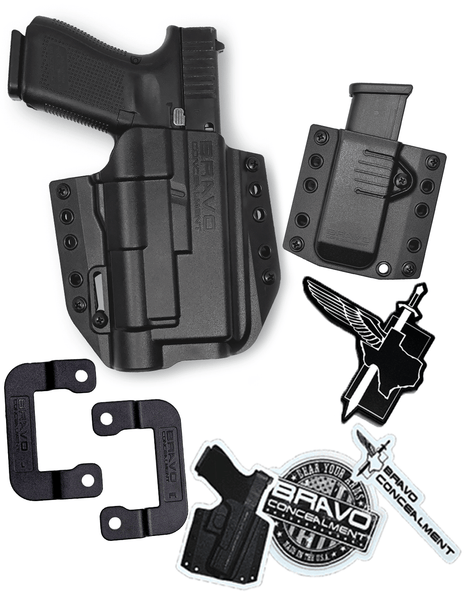
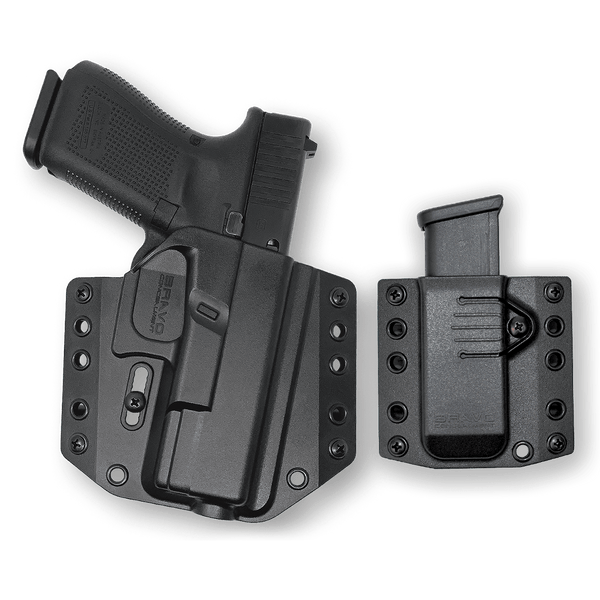
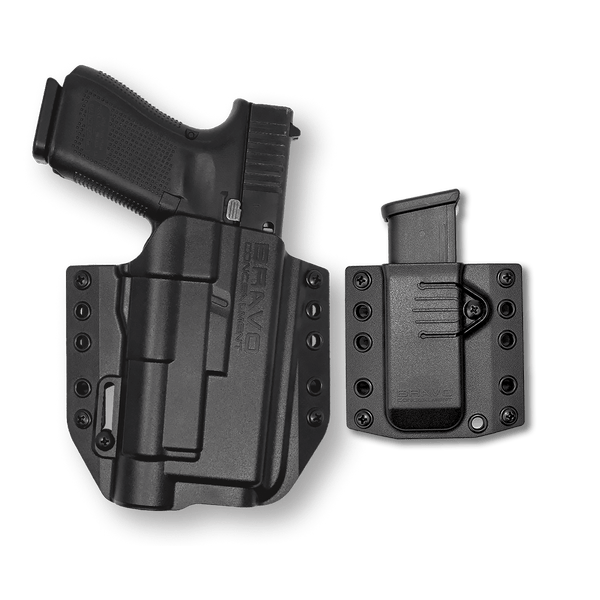
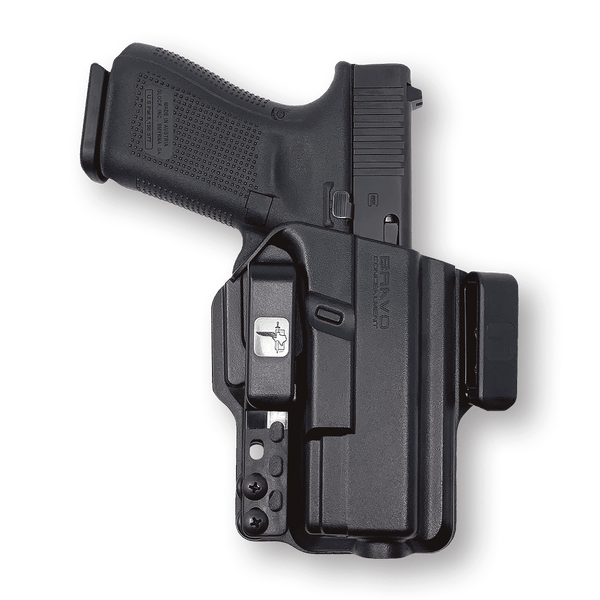
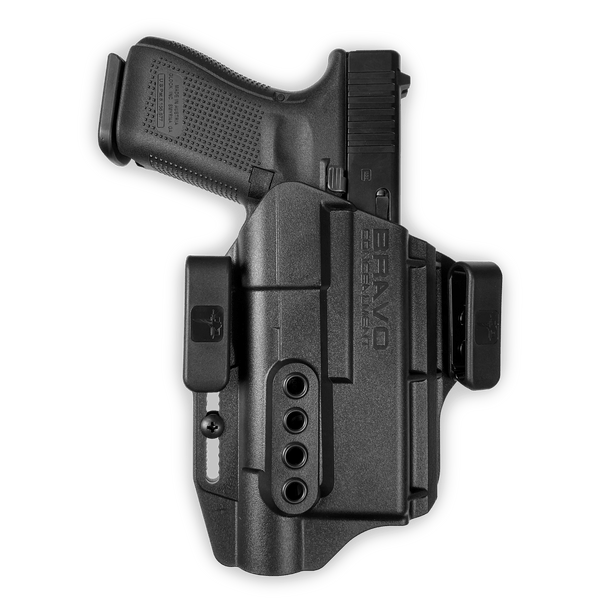
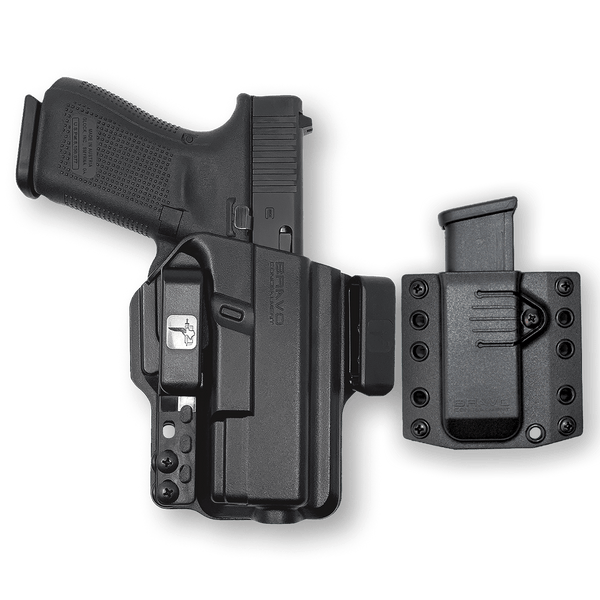
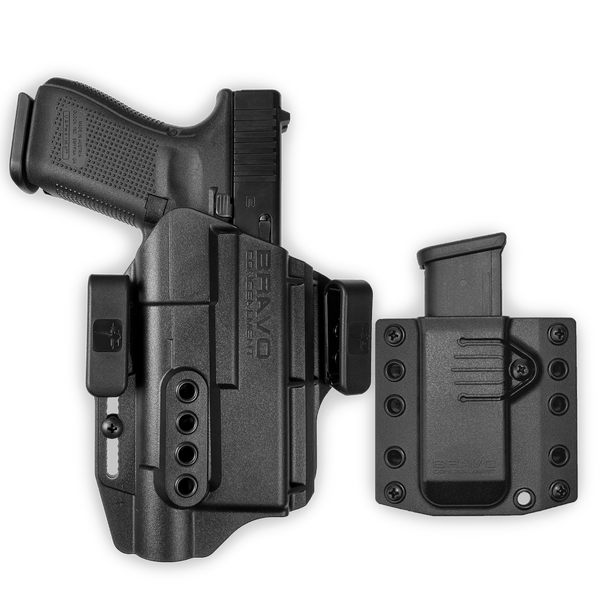
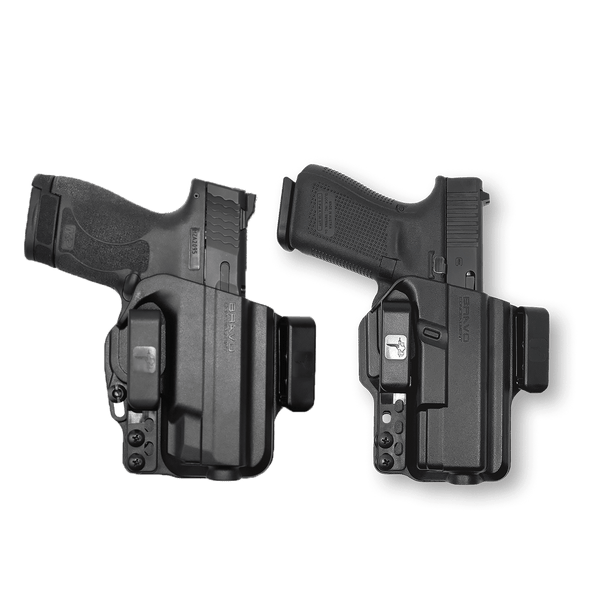
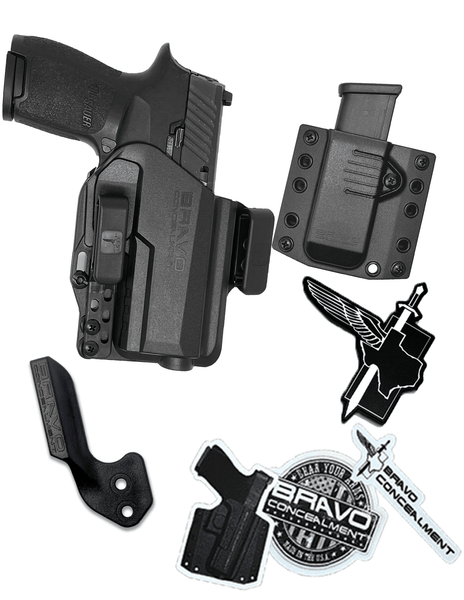
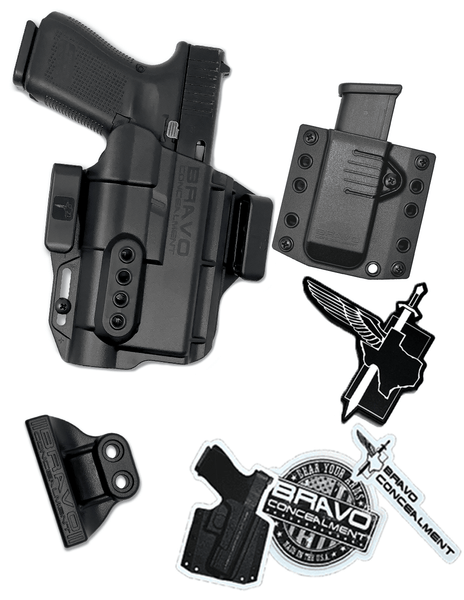
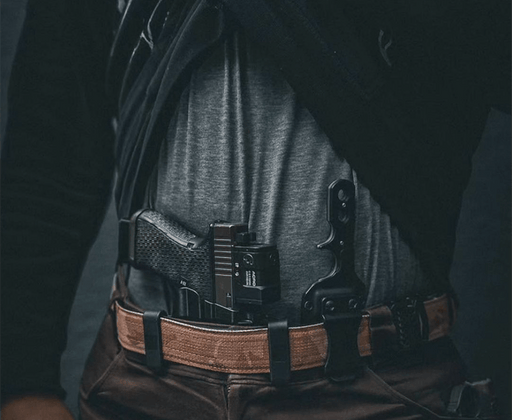
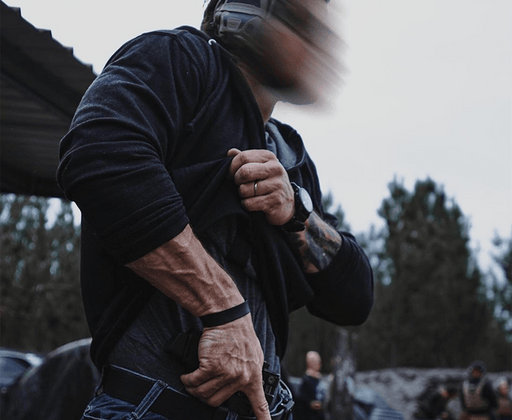
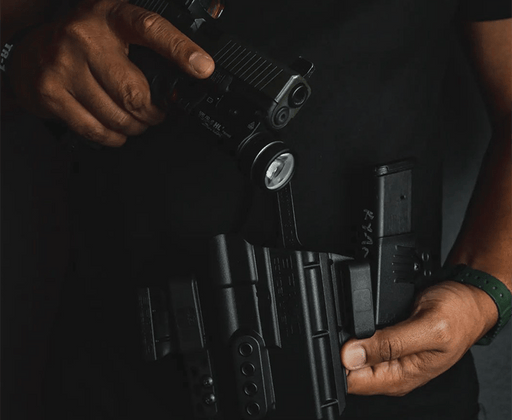
Leave a comment
3 comments
Is this a Glock Store or sometime do other mfg. Guns holsters
Pro:
1. Single focal plane…the focus with a red dot IS the target vs traditional irons which is 3 focal planes…target, front sight, rear sight…and every subsequent shot, alignment x 3…
2. Faster and more accurate than irons at all ranges past 3 meters…if the average shooter can save .25 secs in a gunfight, the expense is negligible [what is your life worth?]
3. Use of red dots makes you better using irons…the red dot identifies every deficiency in grip, draw stoke, presentation, sight alignment and trigger control…its Not the dot, it IS the shooter…regardless of perception otherwise…
Cons: [most can be dismissed with training]
1. Batteries/optics fail…yes, that’s what we have backup irons…suppressor height so they can co-witness…
2. Battery replacement, a pain…most quality optics last for years on one battery …pick one day a year [I use my birthday] and replace all batteries in optics, lights, laser, etc…
3. ‘the dot isn’t crisp/it’s blurry/it blooms’…again shooter issue…Single focal plane is target focus…if you look at the dot [front sight, front sight mantra], astigmatism in your eyes is the issue…focus on the target…overlay the dot..all issues disappear…
4. Training curve…it takes time to learn the dot [valid issue]…my experience is the average shooter needs 250-500 dry fires [grip, draw, presentation, sight alignment, trigger control] and about 200 live fires to get some relative mastery of the dot [a week of practice]…what makes you good with the dot, makes you better with irons…
This list is not all inclusive…
I’ve been debating and talking to gun shops regarding adding a red dot sight on my everyday carry gun. I’ve pretty much have heard negative responses regarding it.
To me seems like a great idea. In the past year I had cataract surgery and had a lens put in my eye for distance but still wear glasses for reading. I did try a friends red dot once but had a difficult time acquiring the target. Your thoughts pro vs con.